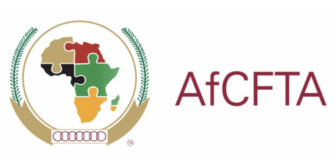Share
Across Africa, momentum is building as several countries inch closer to abolishing the death penalty, reflecting a growing global consensus against capital punishment. Human rights organizations and activists have been calling for an end to the death penalty, citing it as an outdated, inhumane, and irreversible punishment that disproportionately affects marginalized communities. While progress has been made, many African countries remain at a critical crossroads, with the opportunity to either embrace abolition or continue to uphold this form of punishment.
The Current Landscape of the Death Penalty in Africa
As of 2024, several African countries have already made significant strides toward abolishing the death penalty. Benin, Sierra Leone, and Chad are among the nations that have recently taken legislative action to remove capital punishment from their legal systems. However, other countries, such as Nigeria, Botswana, and Egypt, continue to carry out executions, placing them in stark contrast with the global movement toward abolition.
In many African nations, the death penalty remains on the books, but in practice, it is rarely carried out. This is referred to as a de facto moratorium, where the punishment is legally permissible but is no longer applied in reality. Ghana, Kenya, and Zambia are examples of countries that have not executed anyone in years but have yet to remove the death penalty from their legal framework entirely. These nations are seen as being on the cusp of abolition, with growing internal and international pressure to take the next step.
Human Rights and the Call for Abolition
Human rights groups, such as Amnesty International and Human Rights Watch, have been vocal in their opposition to the death penalty, calling it a violation of the right to life. They argue that the death penalty is irreversible, and wrongful convictions can result in the execution of innocent individuals. Furthermore, they highlight the discriminatory nature of the death penalty, as it disproportionately impacts the poor, ethnic minorities, and those with inadequate legal representation.
In Africa, the death penalty is often used for crimes such as murder, armed robbery, and in some cases, treason or terrorism-related offenses. In certain countries, it has also been applied to drug trafficking or blasphemy. Human rights organizations point out that these crimes can be addressed through reformative justice systems, rather than retributive measures such as execution.
Momentum for Change
Countries that have abolished the death penalty in recent years have set a positive example for others. For instance:
Sierra Leone, in 2021, passed a law abolishing the death penalty, replacing it with life imprisonment.
Chad abolished the death penalty in 2020 for all crimes, joining the growing list of African countries that have taken legislative action.
Benin abolished the death penalty in 2018, becoming a regional leader in human rights reforms.
These countries, alongside Mozambique, Côte d’Ivoire, Senegal, and others, represent the growing trend toward abolition across Africa. Their decisions reflect a commitment to human rights, aligning with the United Nations’ Sustainable Development Goals (SDGs), which call for the protection of human rights and the promotion of peace and justice.
The Role of the African Union
The African Union (AU) has played a pivotal role in advocating for the abolition of the death penalty across the continent. Through initiatives such as the African Commission on Human and Peoples’ Rights (ACHPR), the AU has called on member states to adopt a moratorium on executions, with the ultimate goal of full abolition.
The AU has emphasized that the death penalty is incompatible with human dignity and runs counter to the continent’s aspirations for a more just and equitable society. The AU’s Agenda 2063, which outlines a vision for Africa’s development, includes the protection of human rights as a core objective, aligning with efforts to end capital punishment.
Challenges and Resistance to Abolition
Despite the growing momentum, resistance to abolishing the death penalty remains strong in some African countries. Proponents argue that it serves as a deterrent to serious crimes and provides justice for victims. In countries grappling with high crime rates or terrorism threats, the death penalty is often viewed as a necessary measure to maintain law and order.
However, research has shown that the death penalty does not act as an effective deterrent to crime. Countries that have abolished capital punishment have not experienced significant increases in crime rates. Furthermore, the irreversible nature of the punishment and the potential for wrongful convictions outweigh any perceived benefits.
The Road Ahead: A Call for Action
As more African nations debate the future of the death penalty, the international community is watching closely. Human rights advocates are calling on countries with de facto moratoriums to take the final step toward abolition, urging them to enact legislation that permanently removes the death penalty from their legal systems.
African countries on the cusp of abolition have an opportunity to take a bold stand for human rights and justice. By abolishing the death penalty, these nations can position themselves as leaders in the global movement toward ending capital punishment and join the growing number of countries that recognize the inherent value of human life.
Conclusion
Africa stands at a critical juncture in its journey toward the abolition of the death penalty. Countries on the brink of abolishing this inhumane punishment have the chance to make a decisive move that will shape their legal systems and align with global human rights standards. As the continent moves toward greater justice and equality, taking a stand against the death penalty represents a significant step in affirming the dignity and rights of all its citizens.
Image source:amnesty.org










